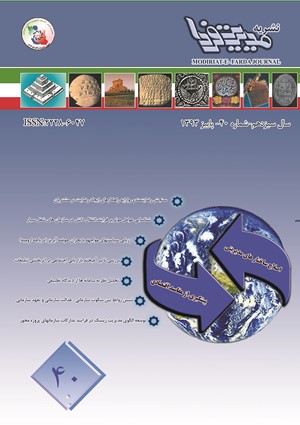شناسایی عوامل موثر بر فرایند انتقال دانش در سازمانهای شغل سیار
محورهای موضوعی : مدیریت دانشوجیهه هوشیار 1 * , محمد لگزیان 2 , مهسا بذرگری 3
1 - مدیریت
2 -
3 -
کلید واژه: انتقال دانش شغل سپاری ابعاد انتقال دانش مولفههای انتقال دانش,
چکیده مقاله :
شغل سپاری روندی است که طی آن سازمانها نیروی کار داخلی را مستقیما با نیروی کار خارجی جایگزین کرده و فعالیتها از مبدا واگذار میشوند. در این هنگام است که نیاز سازمان به انتقال دانش از واحد داخلی به واحد شغل سپاری شده آشکار میشود. در فرایند انتقال، دانش، از منبع به گیرنده یا کاربر، انتقال می یابد که در طی این فرایند فاکتورهای اثرگذاری به چشم میخورند. هدف تحقیق حاضر، شناسایی فاکتورهای تاثیر گذار بر انتقال دانش در سازمانهای شغل سپار میباشد. روش تحقیق مورد استفاده تحلیل محتوا است. پس از تحلیل محتوای بیش از 60 مطالعه، مدل چهارسطحی عوامل تاثیرگذار در انتقال دانش شناسایی شد. در سطح اول مدل، سه بعد محتوا، فرد و زمینه به عنوان ابعاد اثرگذار بر فرایند انتقال دانش، شناسایی گردید. در سطح دوم مدل، برای هر بعد مولفههایی استخراج شد که در انتقال دانش، علی الخصوص در شرکت های شغل سپار تاثیرگذارند. دانش، مولفه ای تاثیرگذار در بخش محتوا، اعتماد، انگیزه و ظرفیت جذب مولفههای تاثیرگذار در بخش فرد و فرهنگ نیز مولفهای تاثیرگذار در بخش زمینه شناسایی شد. در سطح سوم و چهارم مدل نیز اجزاء تشکیل دهنده ی برخی از مولفهها و همچنین روشهای انتقال دانش ارائه گردید. در نهایت نیز برای سنجش اعتبار مدل استخراج شده، مدل مذکور به تعدادی از خبرگان و اساتیدی که پیرامون این حوزه اطلاعات کافی داشته، داده شد و تمامی ابعاد، مولفه ها، اجزاء تشکیل دهنده ی برخی از مولفهها و همچنین روشهای انتقال دانش مورد تایید قرار گرفت
Offshoring is a trend during which organizatios directly replaced Internal labor with foreign labor and the activities are transferred from the source. At this time organization’s need to transfer knowledge of the local unit of offshoring jobs has become evident. In the process of transferring, knowledge from the source to the recipient or user, is transmitted via factors that affect the process.The aim of the present study was to identify factors influencing knowledge transfer in offshoring organizations. Content analysis is a research method used in this study. After the content analysis of more than 60 studies, a model in four levels of factors impacting knowledge transfer were identified. At the first level, three dimensions of content, the individual and the context were identifid as the effective factors in knowledge transfer process. At the second level, the following components were extracted from each dimension which affected knowledge transfer, especially in offshoring firms. Knowledge is a vital component in the content level. Confidence, motivation and capacity are effective in individual level and culture was identified to influence the context level. At the third and fourth level of the model, elements of these components as well as methods of knowledge transfer were presented. To assess the validity of this model, all aspects, components, parts and materials were confirmed by a number of experts who were aware of the model

